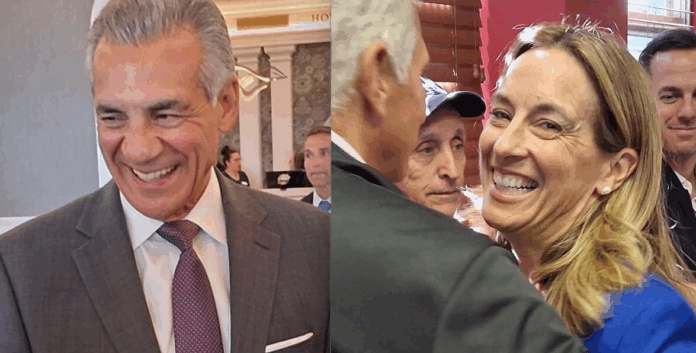As New Jersey barrels toward its November 4th gubernatorial election, the Garden State is confronting political turbulence on multiple fronts — from a fierce contest for the governor’s mansion to fallout from the ongoing federal government shutdown. But beneath the noise of campaign trail attacks and funding fights lies a deeper, more enduring challenge: how the next governor will care for a rapidly aging population of more than 1.6 million residents.
New Jersey’s older adults represent one of the state’s most powerful and least partisan constituencies. As the population ages, the systems that serve them — healthcare, housing, transportation, and social services — will define the next decade of public policy. Advocates argue that when the state strengthens support systems for older residents, everyone benefits, from families to working professionals to future generations.
The gubernatorial race has amplified these concerns. With just weeks left before voters head to the polls, Democrat Mikie Sherrill and Republican Jack Ciattarelli are waging an increasingly personal and high-stakes battle.
During their most recent debate, tempers flared as each candidate sharpened attacks on the other’s record and priorities. Ciattarelli, buoyed by the endorsement and campaign backing of former President Donald Trump, has leaned heavily into a message of fiscal restraint and smaller government. Trump is expected to join the campaign through upcoming tele-rallies designed to energize the Republican base.
Sherrill, meanwhile, has drawn substantial support from national Democratic figures, including former Secretary of State Hillary Clinton, who recently appeared at a fundraising event for her campaign. Sherrill’s platform emphasizes affordability, infrastructure, and protecting reproductive rights — three issues polling consistently shows as top concerns for New Jersey voters.
Taxes, energy costs, and education continue to dominate voter conversations. But with the economy under strain and affordability ranking as the number one issue across the state, both candidates have struggled to present concrete solutions that resonate beyond party lines. Polls remain volatile, with undecided voters expected to play a decisive role in determining who leads the state next.
The race’s political intensity has extended beyond the debate stage. Ciattarelli recently asked the state’s Election Law Enforcement Commission (ELEC) to rule that a defamation lawsuit he plans to file against Sherrill would not count toward his campaign spending cap — a legal maneuver that has further fueled tensions between the two camps.
Meanwhile, federal politics have crashed headlong into New Jersey’s state race. During the government shutdown, Trump announced he was “terminating” federal funding for the Hudson Gateway Tunnel project, calling it a “wasteful Democratic project.” The statement ignited outrage among local leaders, who insist the project is critical to the economic vitality of the Northeast Corridor.
Sherrill condemned the move as “pure spite and stupidity,” while Governor Phil Murphy warned that halting the project could cripple the region’s transportation network and economy. Officials from both states have vowed to challenge the administration’s actions through every available legal channel.
The tension between Washington and Trenton has been heightened by another federal clash: a lawsuit filed by the Trump administration against several New Jersey cities — including Newark, Paterson, Jersey City, and Hoboken — over their “sanctuary city” policies. The cities argue that the lawsuit represents an unconstitutional overreach and are asking the courts to dismiss it.
Beyond the high-profile headlines, other political stories continue to unfold across the state. In Trenton, a municipal judge dismissed disorderly conduct charges against activist Leonard Filipowski, known publicly as Leroy Truth, who was removed from a Senate Judiciary Committee hearing earlier this year. The ruling was widely seen as a victory for public transparency advocates.
Elsewhere, the state is moving forward with long-overdue reforms to its correctional system. Construction will soon begin on a $310 million women’s correctional facility, slated for completion in 2028. The new facility will replace the century-old Edna Mahan Correctional Facility, which has been plagued for years by abuse scandals and calls for closure.
With so many competing priorities — aging infrastructure, a changing demographic landscape, and political divisions deep enough to challenge any administration — the next governor of New Jersey will inherit a complex legacy and a daunting to-do list. Whoever takes office will have to balance national political pressures with the deeply local needs of New Jersey families, seniors, and commuters.
As the state prepares for one of its most consequential elections in recent memory, one thing is clear: the future of New Jersey will hinge not only on partisan victories but on whether its next leader can deliver stability, compassion, and effective governance for all generations. For continued updates and in-depth political coverage, visit Explore New Jersey Politics.












